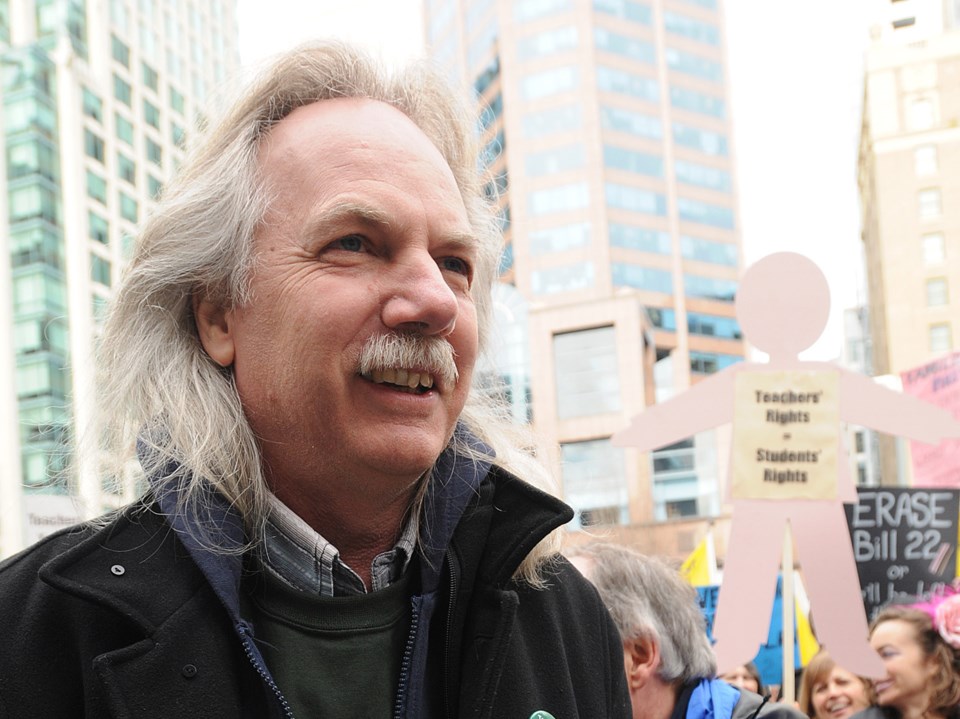The B.C. Teachers’ Federation hopes striking now will mean better times in September.
“We want the assurances of small class sizes for our students in September, minimum levels of specialist teachers and class composition guarantees,” Jim Iker, president of the BCTF, told reporters April 17 when he announced job action would start April 23.
Job action will be administrative only. Teachers will continue to instruct students, participate in extracurricular activities, write report cards and communicate with parents.
Teachers won’t supervise students before and after school or during lunch and recess. Meetings and written communications with administrators will be limited. Teachers are not to be at school more than an hour before or after class times, except for arranged voluntary activities.
Iker said strike action would depend on progress at the bargaining table. He said teachers hope to reach a deal with the province before the end of June.
The BCTF wants:
- Kindergarten classes capped at a maximum of 20 students. Legislation sets the limit at 22 and kindergarten classrooms in Vancouver serve an average of 18 students, as of Oct. 15.
- Grade 1 to 3 classes at a maximum of 22 students. Current legislation sets the limit at 24, and classrooms in Vancouver serve an average of 22 students, as of Oct. 15.
- •Grade 4 to 12 classes at a maximum of between 27 and 30 students. Iker said some classes hold more than 30 students now. Grade 4 to 7 classes in Vancouver serve an average of 26 and Grade 8 to 12 classes an average of 24 students, as of Oct. 15.
B.C. Supreme Court Justice Susan Griffin ruled in January that the government must restore collective bargaining provisions that relate to class size and composition and help provided in classes for special needs. The ruling said language would be returned to teachers’ collective agreement retroactively but would likely be the subject of bargaining. The government is appealing the decision.
The BCTF wants salary increases of three per cent per year over three years plus a cost of living adjustment.
“Compared to our colleagues across Canada, we’re anywhere between sixth and ninth [in terms of salaries],” Iker said. “We’re looking at the three per cent to try to just close that gap a bit.”
The government has shifted its offer of a 0.5 per cent increase for the first year to a 0.75 per cent increase in the last six weeks, according to the BCTF.
The government’s contract with teachers expired last June, so teachers received no pay increase in 2013-2014 and would receive no increase for 2014-2015, with various one per cent and 0.5 per cent increases until 2019.
“They’ve also said there’s another 0.75 per cent available if we were to strip something out of our collective agreement,” Iker said.
Education Minister Peter Fassbender was quoted in a government media release as saying last Thursday that the BCTF’s position has moved little.
If bargaining doesn’t progress to the BCTF’s satisfaction, schools could close one day per week in rotating strikes.
“We will give government some more time, to avoid school closures,” Iker said.
Calls to the B.C. Public School Employers’ Association, which negotiates on behalf of school boards, and the Vancouver Elementary Principal and Vice Principals Association were not returned.
twitter.com/Cheryl_Rossi



